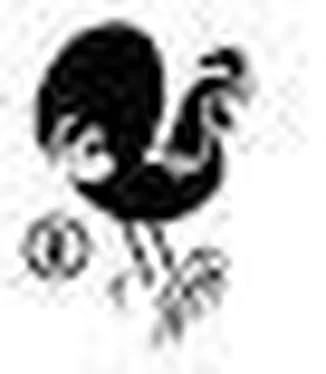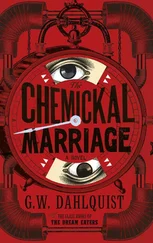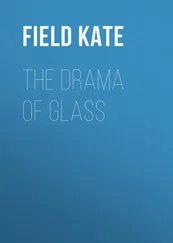She launched herself out of the Boniface, wearing a simple but frankly quite flattering green and gold flowered dress, with green leather ankle boots and a green bag, walking crisply toward the district of expensive shops that filled the streets on the near bank of the river. She was not interested in actively buying anything, but had the idea that looking at the assembled goods of the city—of the world—making their way from so many different lands to this collection of shops might serve as a spur to new thinking about her own new state of affairs. With this in mind, she found herself eager, even restless, moving from stall to stall, her eyes roving without lingering over fabrics, carved boxes, glassware, hats, trinkets, gloves, silks, perfumes, papers, soaps, opera glasses, hairpins, feathers, beads, and lacquered items of all kinds. At no point did she actually stop, and sooner than she had imagined possible Miss Temple found herself on the district’s other side, standing at the edge of St. Isobel’s Square.
The day above her was a cloudy grey. She turned and retraced her steps, gazing still more intently into each exotic display, but never—if she herself were a fish—finding the item that would hook her attention into place. On the Boniface side again, she wondered exactly what she thought she was doing. How, if she was with clarity embracing her new sense of loss and redefinition, did nothing—not even an especially cunning lacquered duck—generate interest? Instead, at each object, she felt herself driven onward, prey to some nagging urge she could not name, toward some unknown prize. That she had no conscious idea what this prize might be irked her, but she took comfort from the implication that it did exist, and would be potent enough to alert her when it came into view.
So, with a resolute sigh, she crossed back through the shops for a third time, her attention entirely elsewhere, confident, as she crossed the square toward the nest of monumental white stone buildings that made up the government Ministries, that her interest was—in a word—disinterested. The matter lay not so much with the perceived faults of her own person, if any, nor the perceived superiority, if any, of a rival (whose identity she was, out of idle curiosity alone, in the back of her mind trying to guess), but merely that her own case was the best example at hand. Or was it the only example? Still, it did not mean she was troubled by it, or that she’d no perspective, or that for any future affections of the now-beyond-her Roger Bascombe she would give two pins.
Despite these absolutely rational thoughts, Miss Temple paused upon reaching the center of the square, and instead of continuing on to the buildings where Roger was undoubtedly even now at work, she sat on a wrought-metal bench and looked up at the enormous statue of St. Isobel at the square’s center. Knowing nothing of the sainted martyr and in no way devout, Miss Temple was merely disquieted by its vulgar extravagance: a woman clinging to a barrel in surging surf, clothes torn, hair wild, ringed by the flotsam of shipwreck, with the water about her churned to froth by a roiling tangle of serpents that wrapped around her flailing limbs, coiled under her garments and wound across her throat even as she opened her mouth to cry to heaven—a cry one saw to be heard by a pair of angels, winged, robed, and impassively gazing down from above Isobel’s head. Miss Temple appreciated enough the size of the thing and the technical achievements involved, but it nevertheless struck her as coarse and unlikely. Shipwreck, as an island girl, she could accept, as she could martyrdom by snakes, but the angels seemed fatiguingly presumptuous.
Of course, as she looked into the unseeing stone eyes of the forever serpent-beset Isobel, she knew she could have scarcely cared less. Her gaze finally followed her true interest, toward the nest of white buildings, and so, quickly, she formed a plan, and with each step of that plan, a perfectly sound justification. She accepted that she was forever divided from Roger—persuasion and reunion were no part of her aims. What she sought, what she in fact required, was information. Was it strict rejection alone—that Roger would rather be alone than be burdened with her? Was it a matter of personal ambition—that she must be shunted aside in favor of promotion and responsibility? Was there simply another woman who had supplanted her in his affections? Or was there something else that she could not presently imagine? They were all equal in her mind, of neutral emotional value, but crucial as far as Miss Temple’s ability to situate herself in her new loss-inflected existence.
It would be simple enough to follow him. Roger was a man of habits, and even when his hours of work were irregular he would still take his mid-day meal, whenever he did take it, at the same restaurant. Miss Temple found an antiquarian book shop across the street where, as she was obliged to purchase something for standing so long watching through its window, she on impulse selected a complete four-volume Illustrated Lives of Sea Martyrs . The books were detailed enough to warrant her spending the time in the window, apparently examining the colored plates, while actually watching Roger first enter and then, after an hour, re-emerge, alone, from the heavy doors across the street. He walked straight back into the Ministry courtyard. Miss Temple arranged for her purchase to be delivered to the Boniface, and walked back into the street, feeling like a fool.
She had re-crossed the square before her reason convinced her that she was not so much a fool as an inexperienced observer. It was pointless to watch from outside the restaurant. It was only from inside that she could have determined whether or not Roger dined alone, or with others, or with which particular others, with any of whom he might have shared significant words—all crucial information. Further, unless he had merely thrown her over for his work—which she doubted, scoffing—she was like to learn nothing from observing his working day. It was after work, obviously, that any real intelligence would be gathered. Abruptly, for by this time she was across the square and in the midst of the shops, she entered a store whose windows were thick with all shapes of luggage, hampers, oilskins, gaiters, pith helmets, lanterns, telescopes, and a ferocious array of walking sticks. She emerged some time later, after exacting negotiations, wearing a ladies’ black traveling cloak, with a deep hood and several especially cunning pockets. A visit to another shop filled one pocket with opera glasses, and a visit to a third weighed down a second pocket with a leatherbound notebook and an all-weather pencil. Miss Temple then took her tea.
Between cups of Darjeeling and two scones slathered with cream she made opening entries in the notebook, prefacing her entire endeavor and then detailing the day’s work so far. That she now had a kind of uniform and a set of tools made everything that much easier and much less about her particular feelings, for tasks requiring clothes and accoutrements were by definition objective, even scientific, in nature. In keeping with this, she made a point to write her entries in a kind of cipher, replacing proper names and places with synonyms or word-play that hopefully would be impenetrable to all but herself (all references to the Ministry were to “Minsk” or even just “Russia”, and Roger himself—in a complex train of thought that started with him as a snake that had shed his skin, to a snake being charmed by the attractions of others, to India, and finally, because of his still-remarkable personal presence—became “the Rajah”). Against the possibility that she might be making her observations for some time and in some discomfort, she ordered a sausage roll for later. It was placed on her table, wrapped in thick waxed paper, and presently bundled into another pocket of her cloak.
Читать дальше






![Theresa Cheung - The Dream Dictionary from A to Z [Revised edition] - The Ultimate A–Z to Interpret the Secrets of Your Dreams](/books/692092/theresa-cheung-the-dream-dictionary-from-a-to-z-r-thumb.webp)





